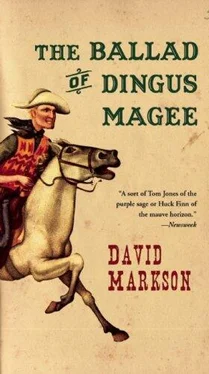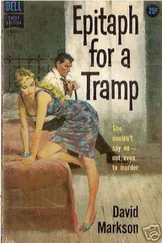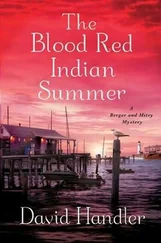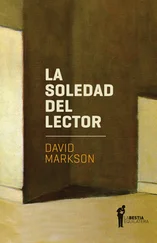David Markson
The Ballad of Dingus Magee
The Ballad Of Dingus Magee
Being the Immortal True Saga of
the Most Notorious and Desperate
Bad Man of the Olden Days,
his Blood-Shedding,
his Ruination of Poor Helpless Females,
& Cetera;
also including the Only Reliable Account
ever offered to the Public
of his Heroic Gun Battle
with Sheriff C. L. Hoke Birdsill,
Yerkey’s Hole, New Mex., 1884,
and with Additional Commentary on
the Fateful and Mysterious
Bordello-Burning of the Same Tear;
and
furthermore interspersed with
Trustworthy and Shamelessly Interesting
Sketches of “BigBlouse”BelleNops,
Anna Hot Water, “Horseface” Agnes,
and Others,
hardly any Remaining Upright
at the End.
Composed in the Finest Modern English
as taken diligently from
the Genuine Archives by
David Markson
“This is funny.”
Doc Holliday, Dying Words
“Pull off my boots.
I promised my mother
I’d never die with my boots on!”
Billy Clanton, The O.K. Corral, Tombstone, 1881
Turkey Doolan’s crotch itched. His scalp was gamy. Poised in the saddle, with one freckled hand inside his jeans and several stumpy fingers of the other beneath his sombrero, he relieved himself by scratching simultaneously and with vehemence.
But Turkey’s complaint was also mental. He knew this for a true fact as he shifted his buttocks athwart the hot leather, waiting while his companion emerged from a sheltered turning on the trail behind him. “Because I done rode with him for almost two weeks now,” he reasoned, “and still there ain’t nothing happened. Even accompanied with Mister Dingus Billy Magee hisself, and it ain’t happened yet.”
Up ahead, where the trail shelved gradually onto a low broad mesa, Turkey had noticed a cavalry patrol approaching in the distance. “But it ain’t about to happen in the middle of no sweaty desert neither,” he knew.
What he was waiting for made something of a story. He was the only child of an itinerant tinker who died when he, Turkey, was nine, and it might have had its beginnings even before that. Because he seemed ready even then, looking ahead solemnly to the occurrence of some fabulous and unpredicated event of which only he, privately, had any intimation. He waited three years in the fourth grade alone.
They risked him behind a counter then (he had a stepfather now, a feed merchant), but there was small point in it. The boy couldn’t calculate, or wouldn’t, and weights and measures eluded him like ritual gossip mouthed in Pawnee. “At least if you’d make an error once in my favor,” the stepfather said. The first time they found no alternative to trusting him alone for an afternoon, this on a day in July of 1876, Turkey loaded several hundred-pound sacks of meal onto a stranger’s wagon and accepted payment in Confederate currency.
They tried in the local smithy next. He was indoctrinated by a recalcitrant mule the first morning, profoundly enough to be unable to sit for a week. Yet after that he seemed to get on, and it even looked that he had a way with horses. “I’m right glad to hear of it,” the stepfather told the blacksmith, “even if he had to be next month to thirteen before I found out.”
“Found out what?” the blacksmith asked. “That the one lesson he’ll take to is the kind gets drove home with the hind legs of a jackass,” the stepfather said.
He held the job for more than two years, although he was still waiting. It was part of him wholly now; he confronted mule and man alike with the same vapidly anticipatory dim gaze. “One day,” he would tell himself. “Sure as shootin’, one day it’s gonter happen.”
Yet he could have remained at the smith’s forever if it had not been for the girl, the farmer’s daughter. They were in the loft when the farmer chanced in, and even then it might have been all right, had the girl not inadvertendy dropped her frock over die side a moment before. The farmer gazed at the garment for perhaps four seconds where it had draped itself across a buckboard wheel, which was long enough for Turkey to deposit a saddle on his head. The man was on his feet again immediately. “But doubtless it weren’t gonter occur around that dull old town anyways,” Turkey had already convinced himself.
It was scarcely about to happen on the trail either. Home had been Missouri, and Turkey’s last silver was gone before he crossed the Panhandle. He signed on herding sheep.
That was his first mistake. Not asking why there appeared to be no other hired hands on the ranch was the second. He had been in the pasture less than two hours when a torrent of longhorn steers came bellowing out from beneath a canopy of dust to wreak predictable enough havoc upon sheep and pasture both, if not to say almost upon Turkey himself. But if he galloped clear of the steers he did not escape the horsemen driving them. “This here’s cattle territory, Cousin,” they let him know. A fractured jaw and a sprung rib reiterated the declaration.
Haifa day later, on a back road to nowhere except away, three nondescript men in a flat-bottom wagon pulled up beside him. This was when he began to get the idea that if and when it ever did come to pass, whatever it was, he wasn’t going to have much luck with it. “Sheep or cattle, Brother?” one of the riders asked. Turkey had an ache in his face, another in his kidney. “Sure, boys,” he said. “Cattle, boys, all down the line.” No one had told him how protractile the war was, or how various its minions. When he hit the roadbed the sheepmen took turns walking on him.
Some hours later he ventured toward a farmhouse to ask a meal. He was shown eight inches of open slat in a Comanche shooting blind and the muzzle of a twelve-gauge shotgun. “State your allegiance, Uncle,” a female voice demanded.
“Aw, lady,” Turkey pleaded, already backing off, “you say first, huh?”
This set the tone. Once in a while he worked at a forge again, which seemed safe enough, but the jobs would never last. They couldn’t, because he was still waiting. So when he took to theft it wasn’t out of greed, or any motive other than the prosaic demands of necessity, of survival. He never became fully adept, never professional. Chickens were his strong suit, sometimes calves young enough to be lashed across a pommel. Perhaps once a year in some isolated back-trail town he would discover a cashbox that was not being watched too closely, or by anyone too acute.
But still it failed to happen, and after four long, unregenerate years he began to sense a certain disillusionment, even something of annoyance. One day he found himself deep in the New Mexico territory without even chickory for his coffee. “All right, then,” he said. “So I reckon it’s about time I made it happen on my own.”
So when he chanced upon his next wayside cantina he paid no attention at all to the handsome, well-combed gelding tethered without. The cantina’s door was open, and when he stepped into the gloom a rusted, secondhand 1873 Colt Peacemaker was at the operative position in his fist. “All right, boys,” he growled, “let’s do the business, everybody’s hands up and I’ll take whatever you’re holding, cash money and don’t omit the watches neither!”
There were two people in the cool windowless dusk. The pigtailed Chinaman behind the bar gazed at him incredulously, without other response. The young man reclining with his boots on the lone table and with a tankard of beer in his hand did not raise the beer, nor did he lower his boots. “Durn it, now,” Turkey grunted, “dint you hear me, boys? I’m riled and I’m luckless, and that can make a man mighty mean.”
Читать дальше












